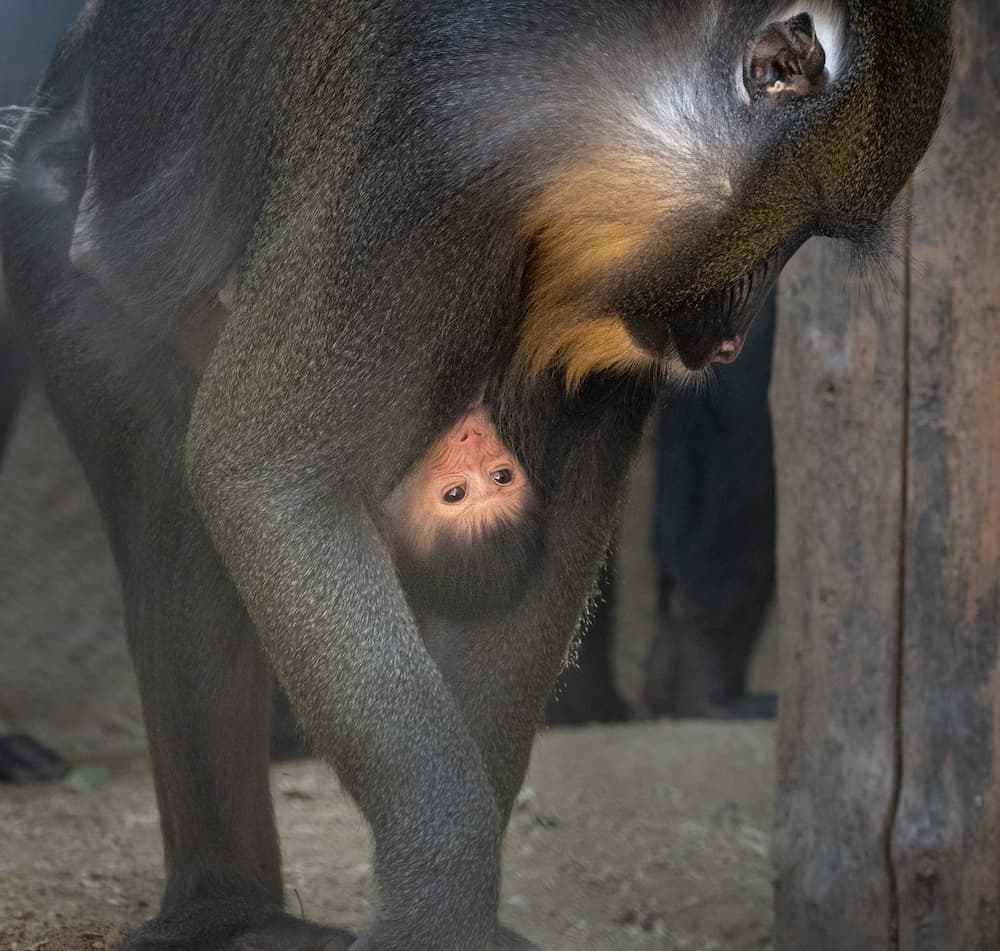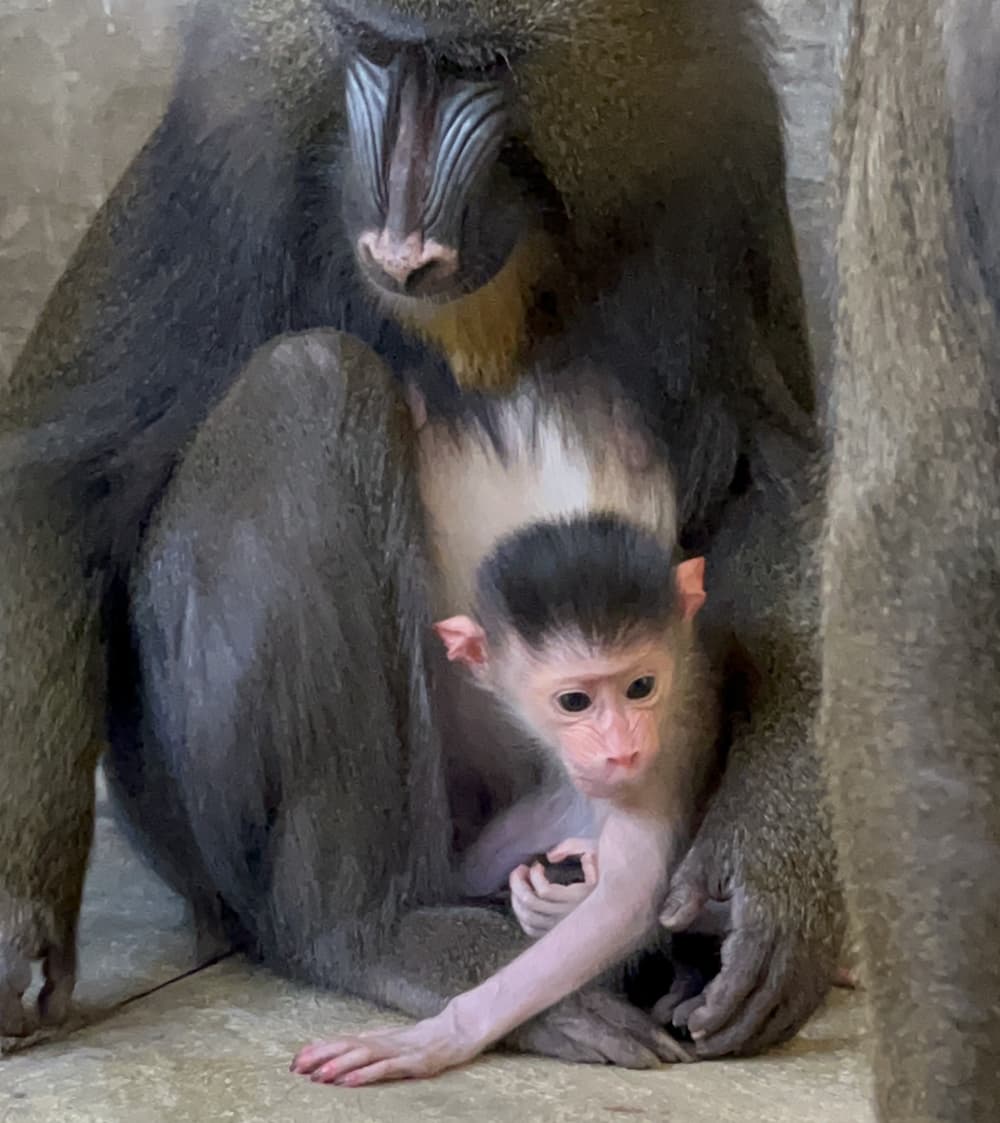by Autumn Hilden

The Zoo is happy to announce the birth of a new female mandrill! The largest monkey species, mandrills inhabit rainforests in western equatorial Africa, and our newest was born at the Zoo at the end of September. She’s already delighting visitors and making strides in her development. “The fall will be a great time to watch our new infant grow,” says Keeper L’Oreal Dunn. “The first few months are always really fun,” with every day providing something exciting to see as the little one learns. And, her pink baby face doesn’t hurt. “Every time I look at her it’s a cute moment,” Dunn says.
So what can guests expect to see when they pay a visit to the new baby? She’s starting to move around a bit more while mom Juliette holds her, and she’s wanting to stand, as well as trying to touch and feel things. “She is becoming very aware of her environment and her other family members,” Dunn shares.
In her first weeks of life, the new baby is especially interested in her big sister, Saleem. The feeling seems to be mutual, as Dunn notes that Saleem “can’t wait to hold” the baby. “When I first watched Juliette let Saleem do a long grooming session with the infant, that was such a surprise and total joy,” Dunn says. “Sometimes it takes Juliette some time before she will let the siblings groom her new infant. This happened on day two, and it was so great to watch.” The grooming sessions have a dual purpose. In addition to creating a bond between family members, Juliette is using this time to teach her older daughter how to raise an infant of her own. Simply put, says Dunn, “Juliette is a great mom.”

Dad Jabari is doing all the right things too. For now, he is watching from a distance, making sure everything is going well. When the infant sleeps, he touches base with Juliette, and their grooming routine continues.
While this birth is exciting for Zoo staff and guests, every mandrill birth is an important milestone from a conservation perspective. Classified as “vulnerable,” mandrills are threatened by habitat loss and hunting in their African rainforest homeland. Where forest remains intact in Cameroon, Gabon, Equatorial Guinea, and Congo, they can thrive, but when it is logged or burned, they are unable to populate the new, changed landscape. This means that each zoo birth represents a precious continuity of genetic material that might one day revitalize a flagging wild population.
But for the new mandrill baby, all that responsibility can wait. For now, she’s focused on learning important lessons about living in a troop. She’ll learn to communicate through scent-marking, high-pitched squeals, and low grunts. She’ll discover how to stuff her cheek pouches with food to eat later, how to forage for the best fruit and veggies, and how to find the choicest enrichment items like the raisins and peanuts that are sometimes scattered throughout the mandrills’ enclosure. She’ll learn how to navigate the complicated social dynamics of her troop. Then one day, hopefully, she’ll go on to start a family of her own, ensuring that mandrills will have a place both in zoos and in the wild for years to come.

